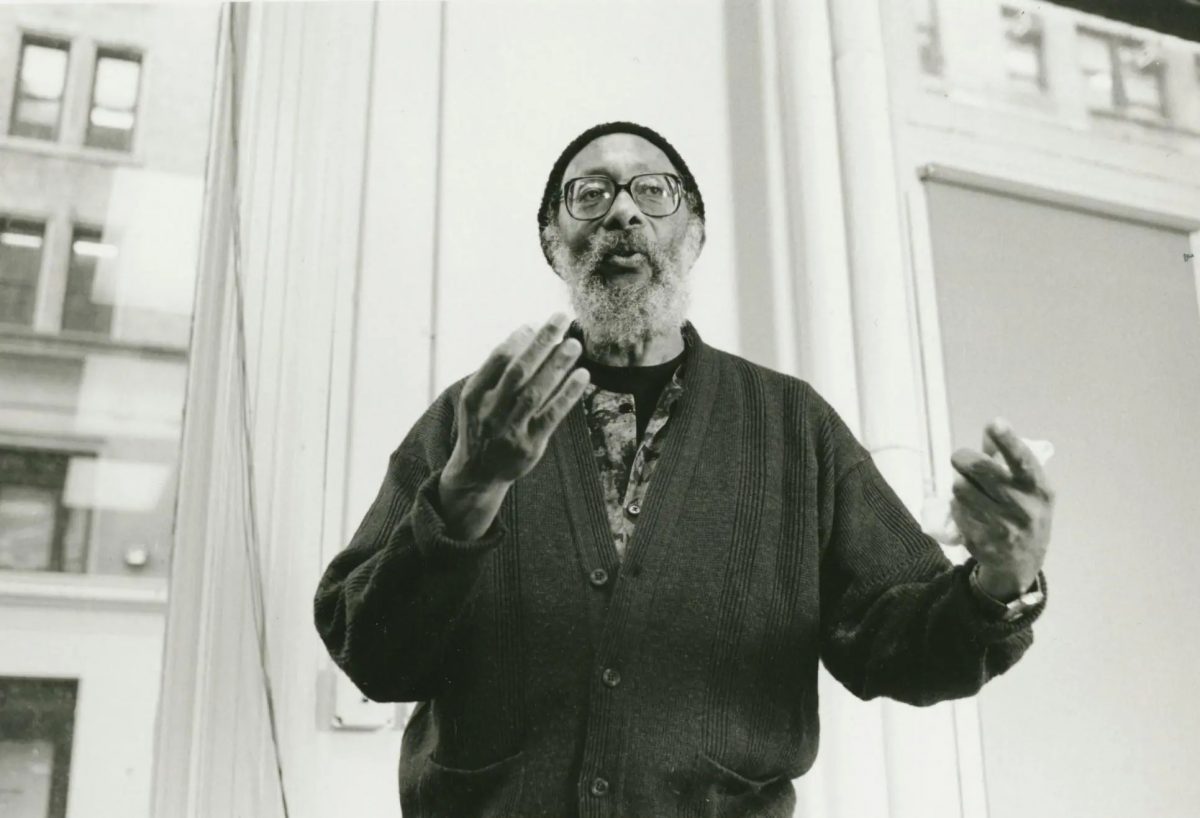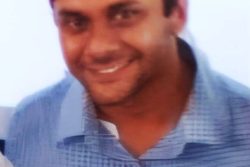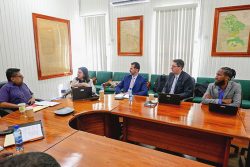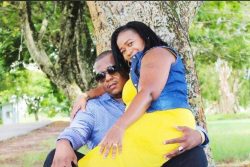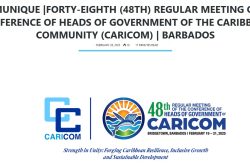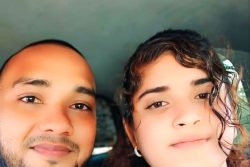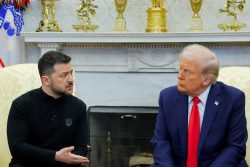1.
When the earth was made
when the wheels of the sky were being fashioned
when my songs were first heard in the voice of the cool of the owl
hillaby Soufriere and Kilimanjaro were standing towards me with
water with fire
at the centre of the air
there
in the keel of the blue
the son of my song, father-giver, the sun/sum
walks the four corners of the magnet, caught in the wind, blind
in the eye of his own hurricane
and the trees on the mountain be-
come mine: living eye of my branches
of bone; flute
where is my hope hope where is my psalter
my children wear masks dancing towards me the mews of their
origen earth
so that this place which is called mine
which will never know that cold scalpel of skull, hill of dearth
brain corals ignite and ignore it
and that this place which is called now
which will never again glow: coal balloon altracite: into cross-
roads of hollows
black spot of my life: jah
blue spot of my life: love
yellow spot of my life: iises
red spot of my dream that still flowers flowers flowers
let us give thanks
when the earth was made
when the sky first spoke with the voice of the rain/bow
when the wind gave milk to its music
when the suns of my morning walked out of their shallow
thrill/dren
2.
So that for centuries now have i fought against these opposites
how i am sucked from water into air
how the air surrounds me blue al the way
from ocean to the other shore
from halleluja to the black hole of hell
from this white furness where i burn
to those green sandy ant-hills where you grow your yam
you would think that i would hate eclipses
my power powdered over as it were
but its hallucination my fine friend
a fan a feather; some
one else’s breath of shadow
the moon’s cool or some plan/et’s
but can you ever guess how i
who have wracked
you wrong
long too to be black
be
come art of that hool that shrinks us all to stars
how i
with all these loco
motives in me
would like to straighten
strangle eye/self out
grow a beard wear dark glasses
driving the pack straight far
ward into indigo and vi
olet and on into ice like a miss
ile
rather than this surrendered curve
this habit forming bicycle of rains and seasons
weathers when i tear my hair
i will never i now know make it over the atlantic of that nebua
but that you may live my fond retreating future
i will accept i will accept the bonds that blind me
turning my face down/wards to my approaching past these
morning chill/dren
– Edward Kamau Brathwaite
February is Black History Month and a good time to revisit the work of one of the legendary poets of the Caribbean, whose verse is established at the very foundation of West Indian literature. Kamau Brathwaite (May 11, 1930 – February 4, 2020) was born Lawson Edward Brathwaite in Barbados but had a distinguished career that made a resounding impact in places where he worked – the UK, Africa, Jamaica, North America and his native Barbados. He earned a prominent place across the entire literary world.
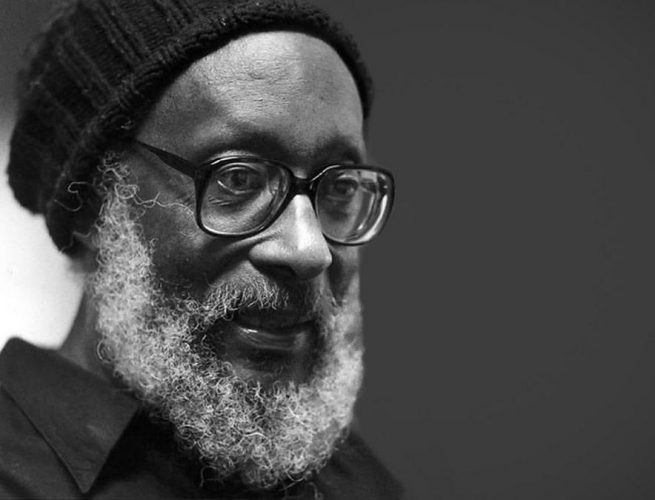
A historian by profession and an influential personality on the Mona Campus of the UWI, he was always equally renowned in the field of literature. His meteoric rise as a poet in the 1960s was owed to the release of Rights of Passage (1967), Masks (1968) and Islands (1969), a trilogy that was republished as The Arrivants: A New World Trilogy in 1973. These were followed by other books of poetry, including what became famous as another trilogy – Mother Poem (1977), Sun Poem (1982) and X/Self (1987).
There were also important publications in history, including Folk Culture of the Slaves in Jamaica (1970), Development of Creole Society in Jamaica 1770 -1820 (1971), and Contradictory Omens: Cultural Diversity and Integration in the Caribbean (1974).
Brathwaite’s impact in literature was considerable, with a number of influential publications such as History of the Voice: The Development of Nation Language in Anglo Caribbean Poetry (1979 and 1984). He founded the Caribbean Artists Movement (CAM) in London along with Andrew Salkey and John La Rose, and launched the Savacou Journal at UWI, Mona in 1970. Both CAM and Savacou were ground breaking contributions to West Indian literature.
The poem “Red Rising” was first published in 1982 in the collection Sun Poem, a pun on Son Poem, which followed Mother Poem (1977) as part of a trilogy. Mother Poem is rooted in Barbados as woman, land and mother, with post-colonial reference to Shakespeare’s Sycorax, mother of the colonised rebel Caliban. Sun Poem moves closer to Brathwaite’s autobiography.
“Red Rising” draws on a number of allusions covering different civilizations, historical and other experiences. Barbados is not known for mountains, but as the poet explained, he placed Barbados’ Hillaby among “mountain landmarks of the Third World” alongside “Soufriere, St Vincent active volcano; and Kilimanjaro, Tanzania”.
Brathwaite’s fame as an Africanist was a major factor in his poetry, especially in Masks (1967). As in that collection, he drew on African language and culture in “Red Rising” with the reference to sun/sum, taken from “sunsum” in the Akan language, which means soul, origin of spiritual life. He was also lauded for his inventiveness, his originality in language use and post-modernist verse structures. In this poem there are examples of such use as in “ihs” which the poet described as “natural/divine version of its/his”. Similarly, he explained “mews” as “a sound word” meaning news, and “iises” as a Rasta version of “praises”.
But Brathwaite explored other cultures and disciplines. “Jah, love, and thanks” are “Rasta ritual words, juxtaposed here with North American Indian sacred colours: black, blue, yellow and red”. He also alluded to the bone flute, which was examined by Wilson Harris as a ritualistic instrument of the Guiana Amerindians. The word “hool” is “hole, whirlpool, galactic black hole” as the poet invoked the cosmos, taking his poetry to a wider world beyond the universe.
